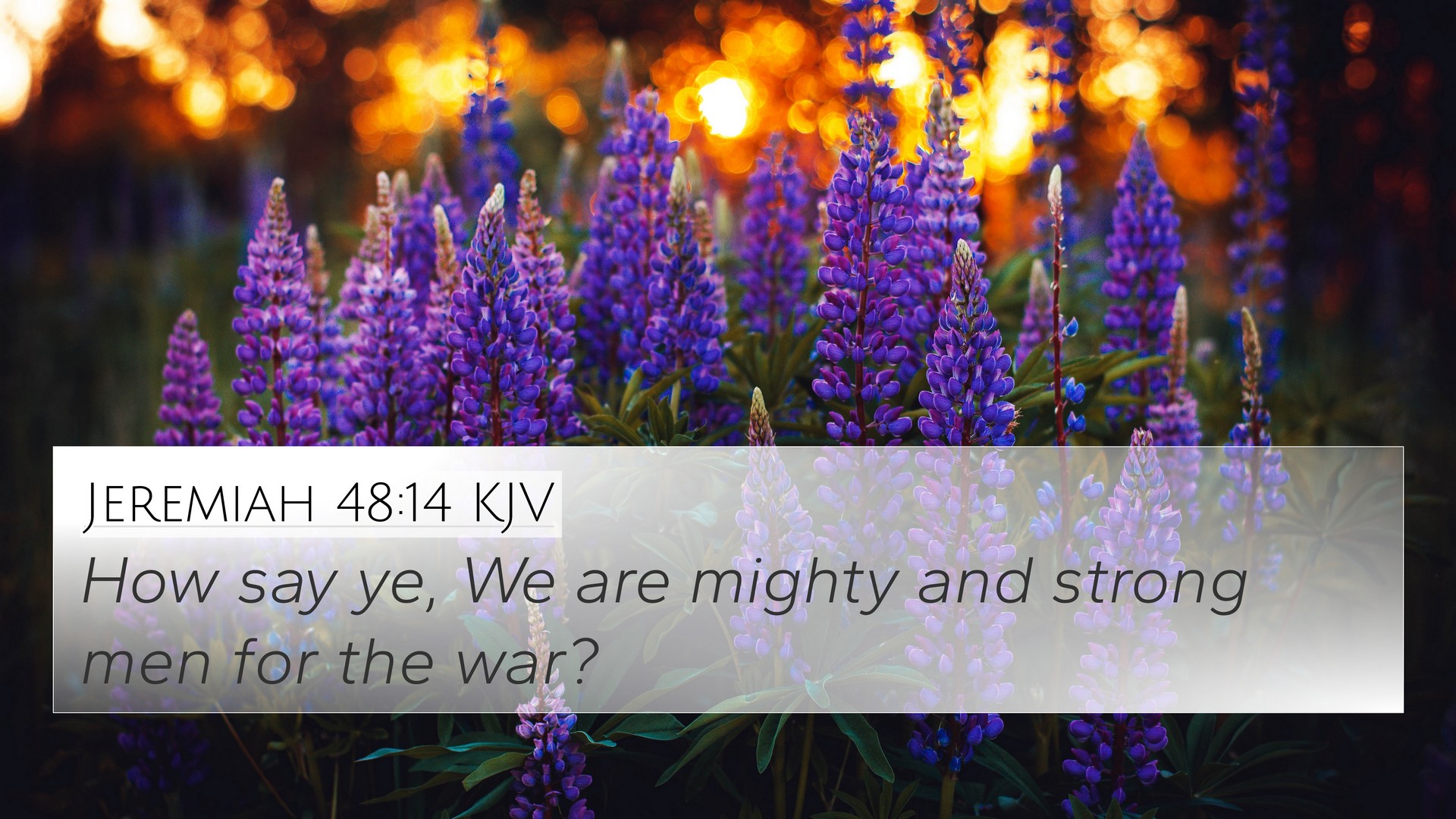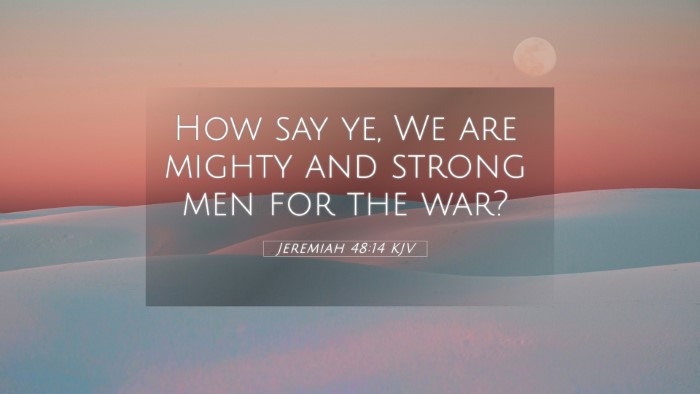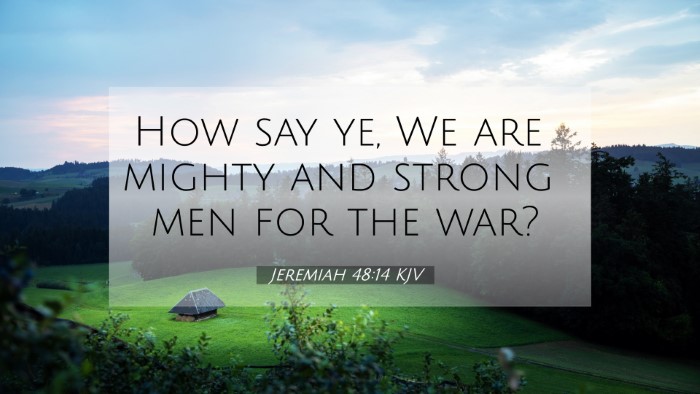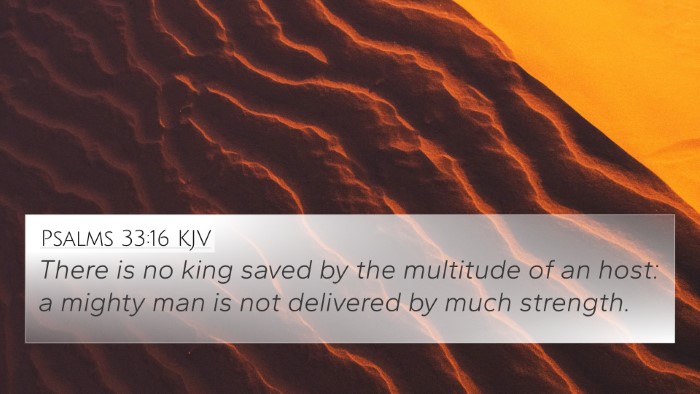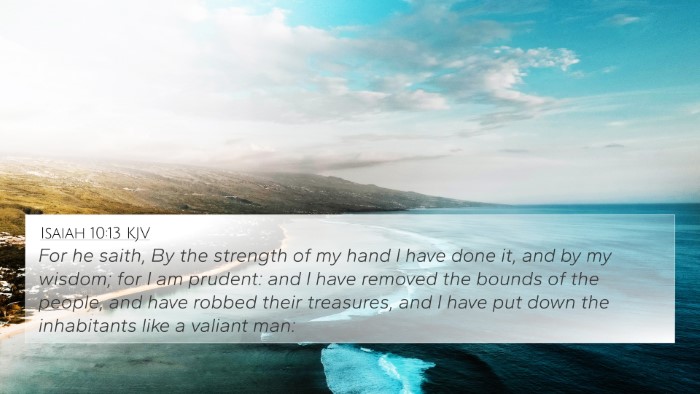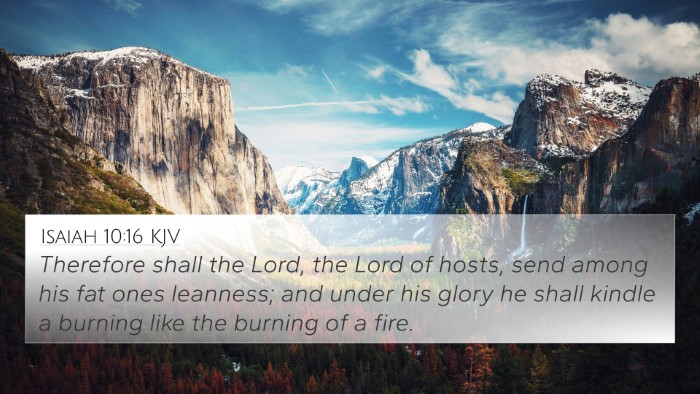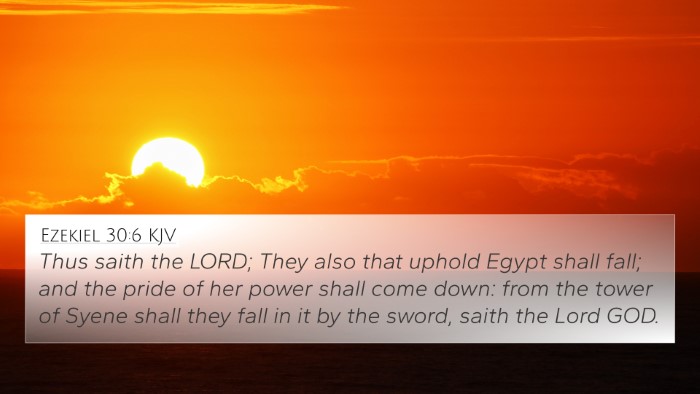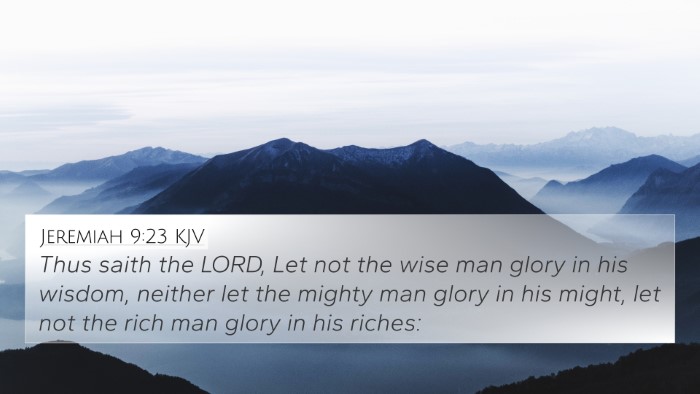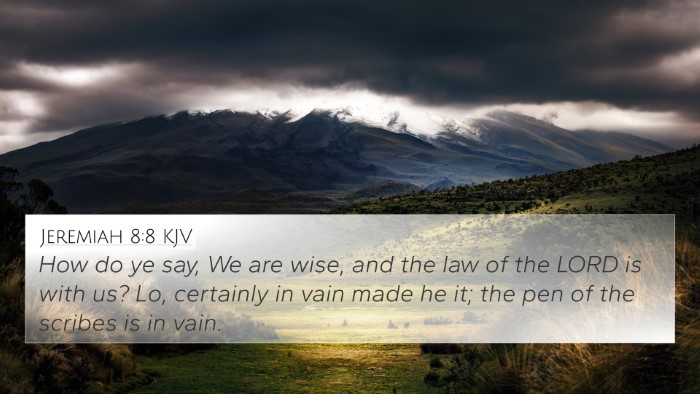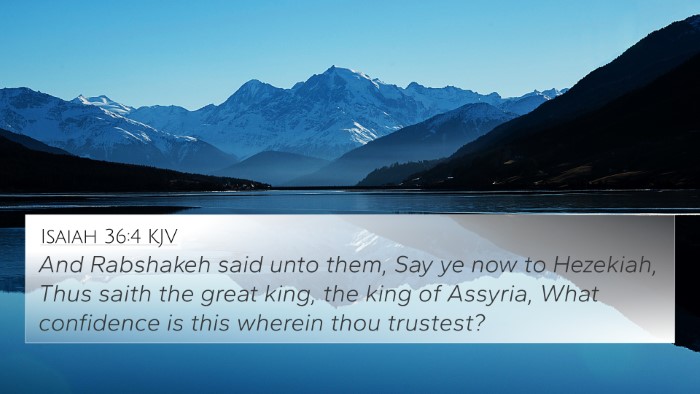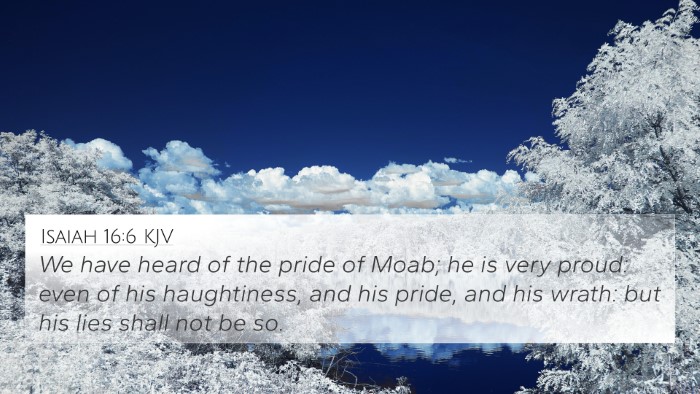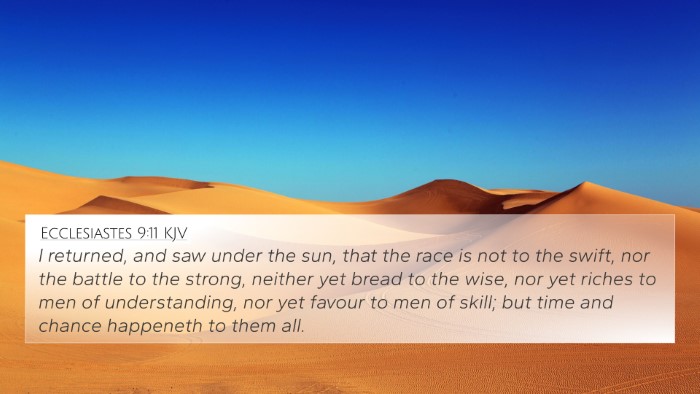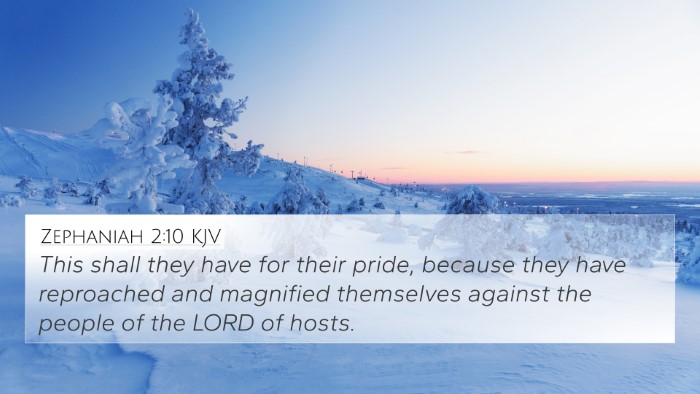Meaning of Jeremiah 48:14
Verse Reference: Jeremiah 48:14 - "How say ye, We are mighty and strong men for the war?"
This verse addresses the misplaced confidence of Moab, as the prophet Jeremiah reveals the pride and delusion of the Moabites concerning their strength and readiness for battle against the impending judgment from God.
Contextual Analysis
Jeremiah 48 is a passage that serves as a prophecy against Moab. The Moabites had long been enemies of Israel and had relied on their own strength and military prowess. By declaring themselves "mighty and strong men," they exhibit a denial of the reality of God's judgment and the imminent destruction that awaits them.
Commentary Insights
- Matthew Henry: Henry emphasizes that this verse exposes the folly of relying on human strength. The Moabites are depicted as overconfident, failing to recognize the divine power that is against them.
- Albert Barnes: Barnes notes that the rhetorical question posed in the verse serves to highlight Moab's arrogance. He suggests this signifies their ignorance and lack of faith in God's sovereignty over nations.
- Adam Clarke: Clarke interprets this verse as a call to recognize the futility of pride and self-reliance. He explains that the prophecy serves as a warning to those who mistakenly consider themselves strong without acknowledging God.
Thematic Connections
Jeremiah 48:14 serves as a crucial exploration of themes such as:
- Pride: This verse explicitly illustrates the dangers of arrogance and presumption.
- Divine Judgment: Moab's confidence is met with a severe warning of the divine judgment to come.
- Human Limitations: It effectively underscores the limits of human strength in the face of God’s purpose.
Bible Verse Cross-References
To better understand Jeremiah 48:14, consider the following cross-references:
- Proverbs 16:18: "Pride goeth before destruction, and a haughty spirit before a fall."
- Isaiah 2:12: "For the day of the Lord of hosts shall be upon every one that is proud and lofty."
- James 4:6: "God resisteth the proud, but giveth grace unto the humble."
- Psalm 20:7: "Some trust in chariots, and some in horses: but we will remember the name of the Lord our God."
- Jeremiah 49:16: "Thy terribleness hath deceived thee, and the pride of thy heart, O thou that dwellest in the clefts of the rock."
- 1 Corinthians 10:12: "Wherefore let him that thinketh he standeth take heed lest he fall."
- Isaiah 47:10: "For thou hast trusted in thy wickedness: thou hast said, None seeth me."
Understanding Through Comparative Bible Verse Analysis
The analysis of Jeremiah 48:14 isn’t isolated; it can be enriched through comparative studies with other Scriptures that convey similar themes. Finding connections between Bible verses can provide deeper insights and reinforce the messages prevalent in the Scripture.
How to Use Bible Cross-References
To effectively utilize cross-referencing in your study of this verse:
- Identify key themes: Recognize themes such as pride and judgment in the verse.
- Conduct comparative studies: Explore how different Scriptures express similar messages.
- Use a Bible concordance: Search for related verses to enhance your understanding.
Conclusion
Jeremiah 48:14 serves as a poignant reminder of the shortcomings of relying solely on human strength. It encourages readers to reflect on their own lives and the importance of humility, placing trust not in oneself but in God’s everlasting wisdom and power. Engaging in scriptural cross-referencing presents an opportunity to explore the richness of this theme throughout the Bible, affirming that divine truth transcends time and context.
